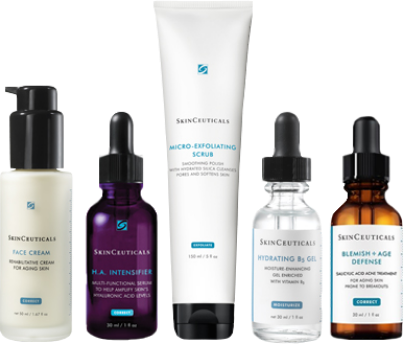Love the Skin You're In
Rash Treatment
It can be unnerving if you notice a skin rash or irritation develop without knowing what’s causing it. Rashes are relatively common skin conditions and can often be treated at home. Different types of rashes often appear similar, however, so it’s important to have yours properly diagnosed if it persists. At our Trinity, Port Richey, and Spring Hill, FL, locations, our dermatology providers diagnose and treat all types of rashes.
What Causes a Rash?
Rashes have varying causes but are often a symptom of contact dermatitis (an allergic reaction to something you touched). Contact dermatitis is very common, with causes including:
- Poison ivy, oak, or sumac
- Dyes or other chemicals in clothes you’ve worn
- Chemicals in elastic, latex, or rubber products
- Cosmetics, soaps, and detergents
Another type of rash is called seborrheic dermatitis, which typically appears as reddish patches and scales around the eyebrows, eyelids, mouth, nose, torso, and behind the ears. Some factors that aggravate this type of skin condition include:
- Age
- Stress
- Weather extremes
- Infrequent shampooing
- Alcohol-based lotions
Dandruff in adults and cradle cap in infants is a type of seborrheic dermatitis.
Hives are a type of rash that tends to be itchy, red, raised, and often patchy. It is frequently triggered by the same things as contact dermatitis but may also have other causes, including:
- Certain foods and food additives
- Infections such as hepatitis, strep, and the common cold
- Medications
- Underlying illness
Other Types of Rashes
A range of skin conditions can cause rashes. These include:
- Eczema (atopic dermatitis)
- Psoriasis
- Impetigo
- Shingles
- Insect bites
Childhood illnesses such as chickenpox, measles, roseola, rubella, hand-foot-mouth disease, fifth disease, and scarlet fever can also cause rashes. Medical conditions, including lupus, rheumatoid arthritis, Kawasaki disease, and certain systemic infections, may result in periodic rashes.
Rash Treatments
Successfully treating a rash requires accurately diagnosing the type of rash and its cause. In the case of contact dermatitis, a dermatologist may identify the cause simply by looking at the rash. In other cases, patch testing is necessary to identify the allergen causing the skin reaction.
Patch testing involves applying small amounts of allergens on the skin and covering them with patches, which are left on for 48 hours. You return to the dermatologist after that time, and they can determine what, if any, allergens caused a rash. Your dermatologist creates a customized treatment plan, and you’re advised to avoid contact with the allergen.
Over-the-Counter Treatments
If you have a rash that itches, you’ll want to find relief as soon as possible. Some at-home remedies for itchy rashes include:
- Calamine lotion
- Hydrocortisone cream
- Zinc oxide
- Oral antihistamines
Cold compresses, oatmeal baths, coconut oil, baking soda, and Epsom salts are some natural ways to relieve discomfort caused by rashes.
When To See a Dermatologist
Even though most rashes pose little or no risk to your health, you should see a dermatologist if you notice any of the following conditions:
- Wide or rapid spread
- Fever
- Blisters
- Pain
- Infection
A dermatology provider at Gulf Coast Medical Center Dermatology & Aesthetics will diagnose the rash and create a customized treatment plan for you.
Professional-Grade Skincare Products

Choose Our Specialists for Your Rash Treatment
Our experienced and caring team has the training and experience to properly diagnose your rash and treat it appropriately. If you’re concerned about a rash, call us at (727) 318-5515 to schedule an appointment.
Rash Treatment Providers
You'll get the time and attention you deserve from our experienced and highly trained board-certified physicians and our talented team of certified assistants.
Neko Futhey, PA-C
Certified Physician Assistant
Dermatology
Julie Hinojosa, MPAS, PA-C
Certified Physician Assistant Dermatology | Master Cosmetic Injector


